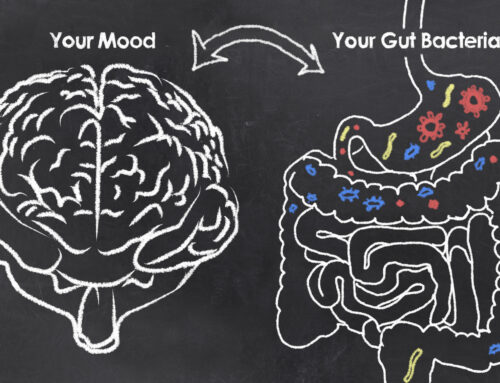In this fast-paced world, it’s easy to overlook the connection between nutrition and mental health. While the significance of nutrition for physical health is well-established, its impact on mental well-being is equally profound. Let’s explore the intricate relationship between nutrition and mental health.
Nutrition: The Cornerstone of Mental Well-Being
- Nutrients for Neurotransmitters:
Our brains are intricate networks of neurotransmitters, the messengers that regulate mood and cognition. Nutrients such as omega-3 fatty acids, vitamins B6 and B12, and folate play pivotal roles in synthesizing these neurotransmitters. A well-balanced diet ensures a steady supply of these nutrients, contributing to good mental health.
- Blood Sugar Balance
The ebb and flow of blood sugar levels impact our mood, energy, and cognition. Choosing complex carbohydrates and fiber-rich foods while avoiding excessive sugars can help maintain stable blood sugar levels, preventing mood swings, depression, and anxiety while promoting sustained mental clarity.
- Gut-Brain Axis
The gut and the brain are in constant communication through the gut-brain axis. A healthy gut, nourished by diverse fruits, vegetables, proteins, and probiotics, positively influences mood and cognitive function. Imbalances in the gut microbiome have been linked to depression and anxiety.
Mindful Eating: Nurturing the Body and Soul
- Balanced Diet:
A diverse and well-balanced diet is the foundation of mental well-being. Include a variety of proteins, healthy fats, fruits, and vegetables to ensure your body receives the broad spectrum of nutrients it needs.
- Hydration
Dehydration can impair cognitive function and contribute to feelings of fatigue and irritability. Ensure you drink enough water throughout the day to support optimal brain function.
- Mindful Practices:
Mindful eating involves savoring each bite, paying attention to hunger and fullness cues, and being present during meals. This practice enhances the enjoyment of food and fosters a positive relationship with eating.
The Impact of Nutrition on Mental Health Conditions
- Depression and Anxiety:
Studies have linked nutrient deficiencies, particularly in omega-3 fatty acids, vitamins D and B, to an increased risk of depression and anxiety. Including these nutrients in your diet may be pivotal in prevention and management. In fact, current studies have seen improvements in patients with bipolar disorder by adding high-quality fish oil to their diets.
- Cognitive Decline
A diet rich in antioxidants, such as those found in berries, leafy greens, and red meat, has been associated with a lower risk of cognitive decline and neurodegenerative diseases.
Practical Tips for a Mind-Nourishing Diet
Prioritize Whole Foods
Choose minimally processed, whole foods over highly processed options to maximize nutrient intake. Find a regenerative farmer near you to purchase your meat, fruit, and vegetables if possible. This will ensure that your food has the highest amount of nutrients possible. You can visit https://farmmatch.com/ to help you find a regenerative farmer near you.
Colorful Plate: Aim for a variety of healthy meats along with colorful fruits and vegetables to ensure a diverse range of nutrients.
Omega-3 Rich Foods: Include sources of omega-3 fatty acids, such as fatty fish, flaxseeds, and walnuts, in your diet.
Moderation is Key: Enjoy treats in moderation and focus on balance rather than strict diets.
As we strive for whole-body health, understanding the profound impact of nutrition on mental well-being is paramount. We support physical and mental health by nourishing our bodies with nutrient-dense foods and adopting mindful eating practices. Let’s embrace the connection between nutrition and mental health as a powerful tool for building resilience, fostering emotional well-being, and living life to its fullest potential.







Leave A Comment